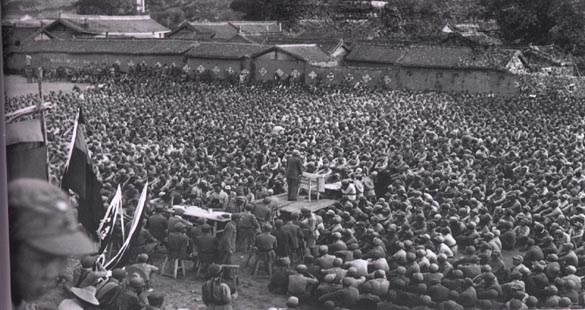October 20, 1935, marks the conclusion of the Long March, a grueling year-long journey that reshaped the Chinese Communist Party (CCP). This 6,000-mile retreat was led by Mao Zedong and played a pivotal role in cementing his leadership. Though initially a military disaster, with the CCP losing a significant number of soldiers and resources, the Long March became a symbol of resilience, propelling the CCP toward eventual victory in the Chinese Civil War.
Interesting Facts:
- The Long March was a strategic retreat by the Chinese Communist Party from Nationalist forces led by Chiang Kai-shek. It began in October 1934 and ended a year later in October 1935.
- Over 80,000 Communist soldiers, displaying unparalleled courage, set out from their base in Jiangxi, but only around 8,000 to 10,000 survived the treacherous journey to Shaanxi in northern China.
- The march covered approximately 6,000 miles, crossing 18 mountain ranges and 24 rivers, including the Dadu River, where the Communists famously secured a daring victory.
- The Long March allowed Mao Zedong to rise to the forefront of the Communist Party, solidifying his leadership and political philosophy. His tactics and endurance won him the loyalty of his surviving comrades.
- Though a retreat, the Long March symbolized Communist perseverance and determination. It also earned them significant support among the Chinese people, who were inspired by the Communists’ resilience and their fight against the Nationalist forces.
- The Long March is often seen as the turning point that ensured the CCP’s survival and eventually led to their victory in the Chinese Civil War in 1949.
- Today, the Long March is not just celebrated, but revered in China as a foundational event in the Communist Party’s history, symbolizing the strength and resolve of the revolution.
The end of the Long March on October 20, 1935, not only marked the survival of the CCP but also set the stage for their eventual rise to power in China, a pivotal moment in history.

